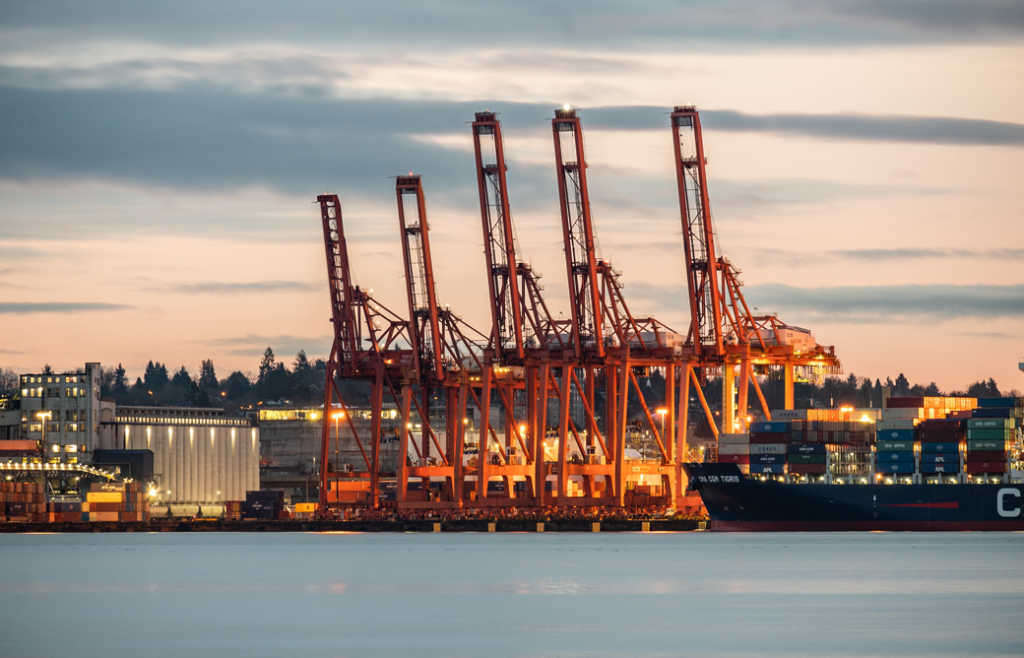
Discover the profound influence of freight industry regulations on operational efficiency. Delve into compliance challenges, advantages, and emerging trends discussed in this informative article. Gain valuable insights to optimize your freight operations.
The world of freight transportation is a bustling arena, where goods traverse vast distances to reach their intended destinations. Behind the scenes, however, lies a complex web of freight industry regulations that govern every aspect of this intricate dance. In this article, we will embark on a journey to explore the importance and impact of these regulations on operational efficiency in the fascinating realm of logistics.
Freight handling is a critical aspect of logistics operations. From loading and unloading to packaging and storage, proper handling practices ensure that goods are protected and moved efficiently. Adhering to industry regulations fosters standardization in handling procedures, promoting safety, minimizing damage, and optimizing the flow of goods through the supply chain.
The freight transportation landscape is not without its risks, which is where freight insurance steps in as a crucial safeguard. Comprehensive insurance coverage provides businesses with protection against unforeseen events, including accidents, theft, and natural disasters. By complying with industry regulations, freight companies ensure that their insurance policies meet the required standards, mitigating risks and safeguarding their valuable shipments.
In an era driven by data, freight visibility and tracking have emerged as essential tools for efficient logistics management. Real-time insights into the whereabouts of shipments enable businesses to monitor their movement, optimize routes, and address potential delays. Compliance with industry regulations facilitates the adoption of standardized tracking systems, enhancing transparency, and providing customers with the visibility they expect.
The advent of drone freight delivery brings forth a new chapter in the world of logistics. Unmanned aerial vehicles offer the potential for faster, more flexible deliveries, particularly in challenging terrains or congested urban areas. As regulations governing drone operations continue to evolve, adherence to industry guidelines becomes paramount for businesses seeking to harness the potential of this innovative technology.
The freight industry is not without its fair share of challenges. From capacity constraints and driver shortages to rising fuel costs and changing customer demands, freight industry challenges require innovative solutions. Compliance with industry regulations empowers businesses to navigate these hurdles effectively, fostering operational resilience, and ensuring the seamless movement of goods even in the face of adversity.
When it comes to transporting perishable goods, the intricacies of cold chain logistics come into play. Maintaining optimal temperature conditions throughout the journey is essential to preserve the freshness and quality of items such as fresh produce, pharmaceuticals, and temperature-sensitive goods. Adhering to industry regulations ensures that the cold chain is meticulously maintained, safeguarding the integrity of these valuable shipments.
Understanding the dynamics of freight rates is crucial for businesses involved in logistics operations. Numerous factors, including fuel costs, capacity, and market conditions, influence pricing structures. Compliance with industry regulations fosters transparency and fairness in pricing, preventing anti-competitive practices and creating a level playing field for freight transportation providers.
As we delve into the realm of freight industry regulations, it becomes evident that their impact on operational efficiency is immense. From handling and insurance to visibility and tracking, compliance with these regulations fosters safety, transparency, and fairness in the dynamic world of logistics.
By embracing the guidelines and evolving with the industry, businesses can navigate the intricacies of the freight transportation landscape with confidence, striving for operational excellence and delivering goods with utmost reliability.

Operating in the freight industry comes with a myriad of compliance challenges that businesses must navigate to ensure adherence to freight industry regulations. From freight handling and freight insurance to freight visibility and tracking, each aspect of the logistics process demands careful attention to regulatory requirements. In this article, we will explore some of the key compliance challenges faced by freight businesses and discuss strategies for overcoming them.
Freight handling is a complex process that involves loading, unloading, and managing cargo efficiently. However, ensuring compliance with safety standards, such as proper packaging and secure storage, presents a significant challenge.
Freight businesses must strike a balance between maximizing operational efficiency and adhering to the strict regulations governing the handling of various types of goods.
Freight insurance is essential for mitigating risks and protecting valuable shipments. However, the complexity of freight insurance policies and coverage requirements can pose a compliance challenge.
Freight businesses need to carefully review and understand the terms and conditions of insurance policies to ensure proper coverage, considering factors such as cargo value, transit routes, and specific industry requirements.
Freight visibility and tracking technologies have revolutionized logistics operations, providing real-time insights into shipment locations and conditions. However, integrating these technologies while maintaining compliance with privacy regulations and data protection laws can be a daunting task.
Freight businesses must navigate the intricacies of data management and ensure compliance with regulations, such as obtaining proper consents and securing data during transmission and storage.
The advent of drone freight delivery brings exciting opportunities for the industry, offering faster and more flexible logistics solutions. However, navigating the ever-evolving regulations surrounding drone operations can be challenging.
Freight businesses must stay abreast of the latest rules and guidelines, obtain necessary permits and licenses, and ensure compliance with airspace regulations and safety protocols to leverage the benefits of drone technology.
Cold chain logistics is essential for transporting perishable goods that require strict temperature control, such as pharmaceuticals and fresh produce. However, maintaining compliance with temperature monitoring and documentation requirements throughout the supply chain presents significant challenges.
Freight businesses must invest in specialized infrastructure, implement robust temperature control processes, and ensure compliance with regulations to safeguard the quality and integrity of cold chain shipments.
Freight rates are subject to various factors, including fuel costs, capacity, and market conditions. Compliance with pricing regulations, such as avoiding price fixing and anti-competitive practices, is crucial for freight businesses. They must carefully monitor market trends, assess cost structures, and adapt pricing strategies to remain competitive while complying with regulatory requirements.
In an era of increased security concerns, ensuring freight transportation security is a critical compliance challenge for businesses. Compliance with security regulations, such as cargo screening, risk assessment, and implementing appropriate security measures, is essential. Freight businesses must invest in robust security systems, train personnel, and collaborate with relevant authorities to maintain the safety and integrity of shipments.
Compliance with freight industry regulations is a continuous journey for businesses operating in the logistics sector. From handling and insurance to visibility and tracking, freight businesses face numerous challenges while ensuring compliance.
By staying informed, leveraging technology, and implementing robust processes, freight businesses can navigate the regulatory landscape effectively, ensuring both operational efficiency and regulatory adherence. Embracing compliance as a core value fosters trust among customers, enhances industry reputation, and sets the stage for sustainable growth in the dynamic world of freight transportation.

In the fast-paced world of logistics, operational efficiency is the key to success for freight businesses. From freight handling and freight insurance to freight visibility and tracking, every aspect of the industry plays a crucial role in optimizing operations and delivering value to customers. In this article, we will delve into the importance of operational efficiency in the freight industry and explore various strategies to achieve it.
Operational efficiency is the backbone of a thriving freight business. It enables companies to streamline processes, minimize costs, and meet customer expectations promptly. By optimizing various aspects of their operations, freight businesses can gain a competitive edge, improve profitability, and enhance customer satisfaction. Let’s take a closer look at some key areas where operational efficiency plays a vital role:
Efficient freight handling ensures that goods are loaded, unloaded, and stored in a timely and organized manner. By implementing standardized procedures, leveraging technology, and providing adequate training to staff, freight businesses can maximize productivity while minimizing errors and delays.
Freight visibility and tracking technologies provide real-time insights into the whereabouts of shipments, allowing businesses to proactively manage logistics operations. By utilizing advanced tracking systems, businesses can monitor shipment progress, identify bottlenecks, and optimize routes, resulting in improved efficiency and on-time deliveries.
The advent of digital freight forwarding platforms has revolutionized the industry by streamlining communication, documentation, and coordination between various stakeholders. By embracing these digital solutions, freight businesses can eliminate manual processes, reduce paperwork, and enhance collaboration, leading to faster and more efficient transactions.
The final leg of the delivery process, known as last-mile delivery, is a critical aspect of customer satisfaction. Optimizing last-mile logistics, including route planning, driver allocation, and delivery tracking, can significantly improve operational efficiency and ensure timely and accurate deliveries.
Ensuring freight transportation security is vital for protecting shipments from theft, damage, and unauthorized access. Implementing robust security measures, such as cargo screening, surveillance systems, and secure storage facilities, not only minimizes risks but also enhances operational efficiency by preventing disruptions and minimizing loss.
Now that we understand the importance of operational efficiency, let’s explore some strategies that freight businesses can employ to optimize their operations:
By implementing these strategies and embracing the latest advancements in technology, freight businesses can unlock the full potential of operational efficiency, enabling them to stay ahead in a highly competitive industry.
In conclusion, operational efficiency is the cornerstone of success in the freight industry. From efficient freight handling to embracing digital solutions and ensuring security, every aspect of operations contributes to overall efficiency.
By focusing on continuous improvement, leveraging technology, and nurturing collaborative partnerships, freight businesses can optimize their operations, enhance customer satisfaction, and drive sustainable growth in the dynamic world of logistics.

In the fast-paced world of freight transportation, regulatory compliance is a crucial aspect that significantly influences operational efficiency. Freight businesses must navigate a complex landscape of Freight Industry Regulations to ensure smooth operations, protect their assets, and deliver value to their customers. In this article, we will explore the impact of regulatory compliance on operational efficiency and discuss strategies to navigate the challenges effectively.
Regulatory compliance encompasses various areas, including Freight Handling, Freight Insurance, and Freight Visibility and Tracking. Adhering to these regulations is not only a legal requirement but also plays a vital role in optimizing operations and ensuring business success. Let’s examine the key aspects where regulatory compliance has a significant impact:
Complying with regulations related to Freight Handling is essential for ensuring the safety and proper handling of goods throughout the supply chain. This involves following guidelines for loading, unloading, and storing freight, as well as adhering to weight limits and packaging requirements. By complying with these regulations, businesses can minimize the risk of accidents, damages, and delays, leading to improved operational efficiency.
Freight Insurance regulations are designed to protect businesses from financial losses due to theft, damages, or other unforeseen events during transit. Complying with insurance requirements not only safeguards the business’s assets but also provides peace of mind to customers. It enables businesses to mitigate risks effectively, ensuring uninterrupted operations and maintaining customer trust.
Regulatory compliance in Freight Visibility and Tracking ensures accurate and real-time monitoring of shipments throughout the transportation process. By implementing systems and technologies that comply with tracking regulations, businesses can enhance visibility, improve supply chain transparency, and proactively address any potential issues. This enables faster decision-making, optimized routes, and timely deliveries, leading to enhanced operational efficiency.
The freight industry faces several challenges when it comes to regulatory compliance. Let’s explore some common challenges and strategies to address them effectively:
By prioritizing regulatory compliance and implementing strategies to navigate the challenges, freight businesses can achieve enhanced operational efficiency, reduced risks, and improved customer satisfaction.
In conclusion, regulatory compliance has a profound impact on operational efficiency in the freight industry. By complying with regulations related to Freight Handling, Freight Insurance, and Freight Visibility and Tracking, businesses can optimize their operations, mitigate risks, and deliver exceptional service to their customers.
Embracing technology, fostering collaborations, and investing in employee training are key elements to successfully navigate the regulatory landscape and drive sustainable growth in the dynamic world of freight transportation.
Remember, compliance is not just a legal obligation; it is a pathway to operational excellence and a competitive advantage in the ever-evolving freight industry.

In the ever-evolving world of freight transportation, regulatory compliance plays a pivotal role in ensuring smooth operations and adherence to Freight Industry Regulations. With the complexity and dynamic nature of these regulations, businesses are turning to technological solutions to streamline their compliance processes and overcome industry challenges. In this article, we will explore innovative technological solutions that are revolutionizing regulatory compliance in the freight industry.
Digital Freight Forwarding platforms leverage advanced technologies, such as cloud computing, artificial intelligence, and data analytics, to automate and optimize various aspects of freight transportation. These platforms provide a centralized hub for managing shipments, documentation, and regulatory compliance requirements. By digitizing processes, businesses can reduce manual errors, ensure data accuracy, and simplify compliance procedures.
Enhanced Freight Visibility and Tracking systems utilize IoT (Internet of Things) devices, RFID (Radio-Frequency Identification) tags, and GPS (Global Positioning System) technologies to provide real-time visibility and tracking of shipments. These systems enable businesses to monitor the location, condition, and movement of goods throughout the supply chain. By ensuring compliance with tracking regulations, businesses can optimize routing, enhance security, and proactively address any potential issues that may arise.
For industries dealing with perishable goods or pharmaceuticals, Cold Chain Logistics solutions are vital for maintaining product integrity and complying with stringent temperature control regulations. These solutions utilize temperature sensors, remote monitoring, and automated alerts to ensure that the cold chain is maintained throughout the transportation process. By leveraging technology, businesses can minimize temperature excursions, prevent spoilage, and demonstrate compliance with regulatory requirements.
Managing Freight Insurance can be a complex task for freight businesses. However, dedicated software solutions simplify the process by automating insurance documentation, claims management, and compliance tracking. These solutions enable businesses to efficiently manage their insurance policies, ensure coverage compliance, and streamline claims processing, thereby reducing administrative burdens and mitigating financial risks.
With the emergence of Drone Freight Delivery, businesses are exploring innovative ways to improve efficiency and comply with regulatory requirements. Drones equipped with advanced navigation systems and sensors can offer faster and more flexible deliveries, especially in remote or challenging terrains. By adhering to local aviation regulations and obtaining necessary permits, businesses can leverage drone technology to enhance last-mile delivery while meeting compliance standards.
Freight Transportation Security is a critical aspect of regulatory compliance. Advanced security solutions, such as video surveillance, access control systems, and cargo screening technologies, enhance the safety and integrity of shipments. These solutions help businesses meet security regulations, prevent theft or tampering, and ensure the smooth flow of goods through the supply chain.
Integrated Freight Management Systems provide end-to-end visibility and control over the entire freight transportation process. These systems combine various functionalities, such as order management, documentation, compliance tracking, and carrier management, into a unified platform. By consolidating operations and data in a single system, businesses can improve efficiency, reduce compliance risks, and enhance customer satisfaction.
In conclusion, technological solutions are transforming regulatory compliance in the freight industry, enabling businesses to navigate the complexities of Freight Industry Regulations more efficiently. By embracing digital freight forwarding, enhancing visibility and tracking, leveraging cold chain logistics solutions, automating insurance management, exploring drone freight delivery, ensuring transportation security, and adopting integrated freight management systems, businesses can streamline their compliance processes and drive operational excellence.
Remember, technological solutions are not a substitute for understanding and adhering to regulations but rather powerful tools that can empower businesses to meet compliance requirements effectively and achieve a competitive edge in the fast-paced world of freight transportation.
In the fast-paced and regulated world of freight transportation, businesses face various challenges that require innovative solutions. In this article, we will explore real-life case studies that showcase how companies have overcome obstacles and achieved success in areas such as Freight Handling, Freight Insurance, Freight Visibility and Tracking, Drone Freight Delivery, Cold Chain Logistics, and more. These case studies demonstrate the power of creativity, adaptability, and technological advancements in the freight industry.
Company: XYZ Logistics
Challenge: XYZ Logistics faced inefficiencies in their freight handling processes, resulting in delays and increased costs. They needed a solution to optimize their operations and enhance customer satisfaction.
Solution: The company implemented a digital freight handling system that utilized barcode scanning, real-time tracking, and automated documentation. This allowed for seamless coordination between different stakeholders, improved warehouse management, and expedited loading and unloading processes.
Results: XYZ Logistics experienced a significant reduction in handling errors, faster turnaround times, and enhanced productivity. The streamlined processes enabled them to meet Freight Industry Regulations more effectively, resulting in improved customer satisfaction and increased profitability.
Company: ABC Shipping
Challenge: ABC Shipping struggled with limited visibility and tracking capabilities for their shipments. They needed a solution to monitor and manage their cargo throughout the supply chain to ensure compliance and enhance security.
Solution: The company implemented an IoT-based freight visibility and tracking system that incorporated GPS trackers and sensor technology. This allowed them to monitor the location, temperature, and condition of their shipments in real-time. The system also provided automated alerts for any deviations from the desired parameters.
Results: ABC Shipping experienced improved visibility and control over their freight operations. They were able to proactively address any issues, reduce theft and losses, and comply with strict Freight Industry Regulations. The enhanced visibility also enabled them to provide accurate tracking information to their customers, building trust and loyalty.
Company: FastDelivery
Challenge: FastDelivery, a courier service, faced challenges in delivering packages efficiently in congested urban areas. They needed a solution to overcome traffic limitations and expedite last-mile deliveries.
Solution: The company embraced drone freight delivery as an innovative solution. They obtained necessary permits, established safe flight corridors, and implemented a streamlined drone delivery process. Drones were used to deliver small packages to customers’ doorsteps quickly and efficiently.
Results: FastDelivery achieved significant time and cost savings in their last-mile deliveries. With drones, they were able to bypass traffic congestion, deliver packages faster, and reduce their carbon footprint. This innovative approach positioned them as a leader in the industry and allowed them to offer unique value to their customers.
Company: MediTrans Pharma
Challenge: MediTrans Pharma faced stringent Freight Industry Regulations and temperature control requirements for shipping pharmaceutical products. They needed a solution to ensure product integrity throughout the cold chain logistics process.
Solution: The company implemented advanced cold chain logistics solutions that combined temperature sensors, remote monitoring, and data analytics. They established strict protocols for temperature control, storage, and transportation, ensuring compliance with regulatory standards.
Results: MediTrans Pharma successfully maintained the integrity of their pharmaceutical products throughout the entire supply chain. The advanced monitoring systems allowed them to monitor temperature deviations in real-time, take corrective actions promptly, and provide accurate documentation for compliance purposes. Their commitment to quality and compliance positioned them as a trusted partner in the pharmaceutical industry.
These case studies highlight the importance of creativity and innovation in overcoming challenges in the freight industry. By embracing technological advancements, companies can improve operational efficiency, enhance compliance with Freight Industry Regulations, and deliver exceptional value to their customers.
Remember, each business is unique, and it’s crucial to analyze your specific requirements before implementing any solutions. By staying informed, embracing change, and leveraging the power of technology, you can unlock success in the dynamic world of freight transportation.
Keep exploring, adapting, and reimagining the future of freight!
The freight industry is an ever-evolving landscape, driven by advancements in technology, changing consumer expectations, and the continuous evolution of Freight Industry Regulations. As businesses navigate this dynamic environment, it’s crucial to stay ahead of emerging trends and challenges to maintain operational efficiency and compliance. In this article, we explore some of the future trends and regulatory challenges shaping the world of freight transportation.
Digital freight forwarding is set to revolutionize the way goods are transported globally. By leveraging technology, businesses can streamline processes, enhance visibility, and optimize Freight Handling. From automated documentation and real-time tracking to digital platforms that connect shippers, carriers, and suppliers, digital freight forwarding is transforming the industry.
However, with these advancements come regulatory challenges. As the industry becomes more digitally integrated, Freight Industry Regulations will need to adapt to ensure data security, privacy, and fair competition.
In the age of e-commerce, last-mile delivery has become a critical factor in customer satisfaction. The demand for faster and more convenient delivery options is driving the exploration of innovative solutions like drone freight delivery and autonomous vehicles. These technologies have the potential to revolutionize the last leg of the delivery process, providing efficient and cost-effective solutions.
Yet, integrating these technologies into existing transportation systems raises regulatory challenges related to airspace management, safety standards, and Freight Transportation Security. Finding the right balance between innovation and compliance will be key to harnessing the full potential of last-mile delivery.
The transportation of temperature-sensitive goods, such as pharmaceuticals and perishable items, requires precise temperature control throughout the supply chain. Cold chain logistics plays a crucial role in maintaining product integrity and Freight Insurance. Emerging technologies, like IoT sensors and blockchain, offer enhanced monitoring and transparency, ensuring that goods are transported under optimal conditions.
However, the stringent regulations governing cold chain logistics pose challenges in terms of compliance, documentation, and quality control. Stakeholders must navigate these Freight Industry Challenges while embracing new technologies to ensure the safe and efficient transport of temperature-sensitive goods.
Sustainability has become a focal point in the freight industry. As businesses strive to reduce their carbon footprint, alternative fuels, electric vehicles, and eco-friendly practices are gaining traction. Governments and regulatory bodies are introducing policies to encourage sustainable practices and impose emission standards.
While these sustainability initiatives are commendable, businesses face challenges related to infrastructure, cost-effectiveness, and compliance with Freight Industry Regulations. Finding innovative solutions and collaborating with stakeholders will be essential in driving the industry toward a more sustainable future.
Enhanced Freight Visibility and Tracking is a game-changer in the industry. Leveraging technologies like IoT, RFID, and GPS, businesses can gain real-time insights into their supply chains, enabling proactive decision-making, improved inventory management, and enhanced customer satisfaction.
However, as the volume of data increases, ensuring data privacy, protection, and compliance with data regulations becomes crucial. Businesses must invest in robust cybersecurity measures and adhere to Freight Transportation Security protocols to prevent unauthorized access and data breaches.
The future of the freight industry is bright, but it also brings forth new regulatory challenges. By embracing technology, fostering innovation, and maintaining compliance with Freight Industry Regulations, businesses can position themselves for success in an increasingly complex and interconnected world of freight transportation.
Stay ahead of the curve, adapt to change, and navigate the future of freight with confidence!
Transport regulation is important to ensure the safety, efficiency, and fairness of transportation operations. It establishes standards for vehicle maintenance, driver qualifications, and road safety. Additionally, it helps regulate pricing, competition, and environmental impact, promoting a sustainable and well-functioning transport industry.
To regulate transport means to establish and enforce rules, policies, and standards that govern the operation and management of transportation systems. It involves setting guidelines for safety, licensing, infrastructure development, emissions control, and other aspects to ensure a smooth and reliable transportation network.
The main types of freight include:
Sea Freight: Goods transported via ships and vessels across oceans and seas.
Air Freight: Cargo transported by air, offering fast and efficient delivery for time-sensitive goods.
Road Freight: Goods transported by trucks and vehicles on roads and highways, typically for domestic or regional distribution.
Rail Freight: Freight transported by trains, often used for long-distance transportation of heavy or bulk goods.
In supply chain management, freight refers to the movement of goods and cargo from one location to another. It involves various activities, such as packaging, handling, transportation, and delivery. Freight plays a crucial role in ensuring the timely and efficient flow of products within the supply chain, connecting suppliers, manufacturers, distributors, and customers.